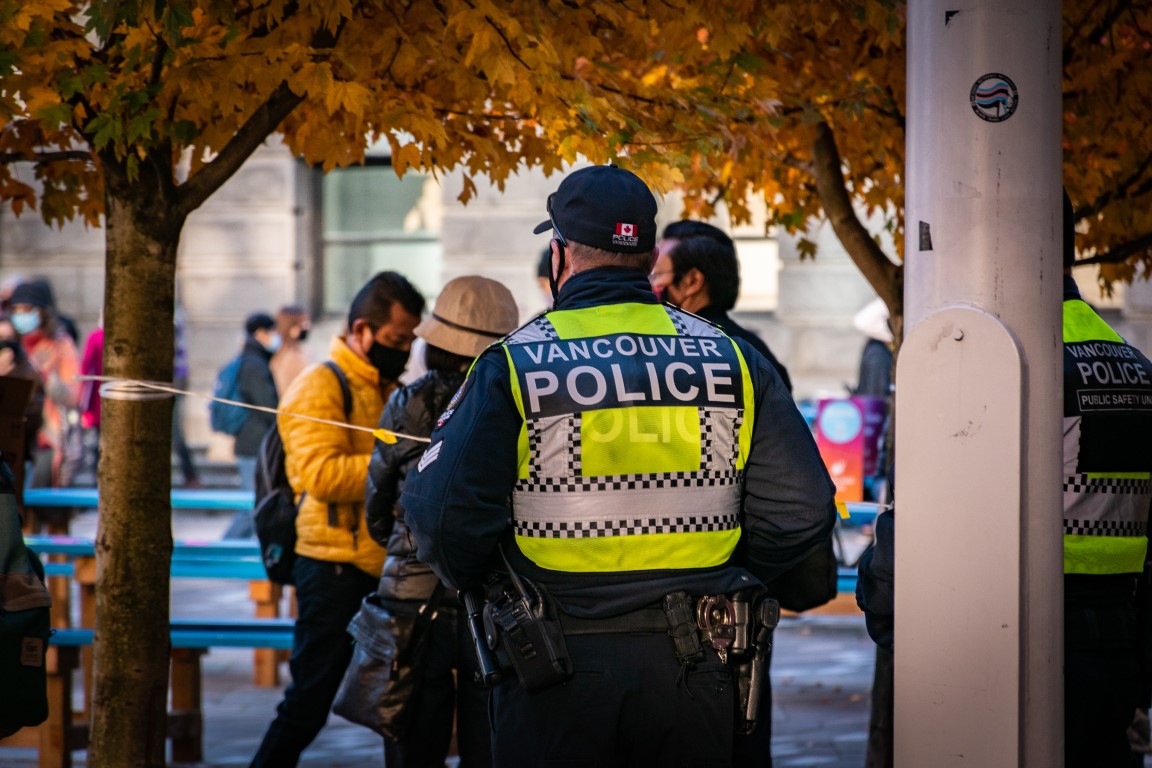
BC citizens are paranoid and believe in rising crime regardless of contradictory data
By Janis McMath, Editor-in-Chief
As mentioned before, Vancouver has seen 15 culpable homicides in 2020. Of those 15, police have made statements on 11 of them as cases that are of no risk to the public.
Vancouver has seen multiple culpable homicides in the past few months. (Culpable homicide is defined by the Government of Canada’s website as wilful actions that result in someone’s death.) September saw three and October saw one. The VPD reports that October’s most recent murder was the 15th this year. Comparing this data to previous years’ shows that the homicide rate is steady. For comparison, 2015 had 16 murders; 2016 had 12; 2017 had 19; 2018 had 15; and 2019 had 10.
Near Kitsilano Beach, a recycling bin was found with humans remains on October 18. They were later identified as Douglas Wanke, a 57-year-old resident of the city. At this point, not much else is known but it has been ruled a homicide and is being investigated as such. Vancouver police ask property managers and residents to call 604-717-2500 to report any missing big, blue, and wheeled recycling bins.
In September, the three homicides that occurred all did so in one night. Two of the homicides that evening were related; officers found two people unresponsive in a room of the Astoria hotel on East Hastings Street—one was pronounced dead at the scene and the other was pronounced at the hospital they were taken to. Within half-an-hour of the first homicide-related call came another; 23-year-old Iqubal Grewal was found dead in front of a house on East 64th Avenue and Knight Street in South Vancouver. The emergency centre received multiple calls in regard to the shots fired in the neighbourhood—one caller from the neighbourhood who spoke to Global News claims to have heard up to eight gunshots. Richmond RCMP later found a burned-up vehicle in a field near Kartner Road and Westminster Highway that has been confirmed to be connected to the shotting of Grewal. For all three of these homicides, the police have released a statement stating they do not believe there is a risk to the public.
A lack of risk to the public is a common trend for the homicides seen in Vancouver—many of the recent incidents have been planned and targeted killings that pose no risk to the population at a whole. As mentioned before, Vancouver has seen 15 culpable homicides in 2020. Of those 15, police have made statements on 11 of them as cases that are of no risk to the public. The remaining four cases have been two cases of manslaughter—which is defined as homicides committed without intent of causing death but may have had intent of causing great bodily harm—and one case of second-degree murder, which is defined as an intentional killing without any premeditated actions. The 15th homicide case is yet to be determined, but still, the majority of homicide cases in Vancouver have been deemed targeted and of no risk to the public.
Seemingly, targeted killings are a common trend—and they can be observed in a similar context: the United States. The US Department of Justice released a report in 2012 stating that between the years of 1993 to 2008, 21 to 27 percent of homicides were committed by strangers—the majority of homicides, 73 to 79 percent, were committed “by offenders known to the victims.” An older report by the Canadian Centre for Justice Statistics mentions that in 1996, “only 14 percent of homicide victims were killed by a stranger.”
Vancouver
also has one of the lower rates of homicides in the world; for example,
Tijuana, Mexico had 1,305 murders in 2020 as of
the end of August, which is about 5.5 per day. Regardless of this fact, and the
fact that many of the murders in Vancouver were not random and that homicide
rates (and crime rates in general) are steady,
polls show that our population believes that crime is going up. An Angus Reid poll from 2020 found that
about half of all Canadians believe that crime is on the rise—and this idea was
“considerably” higher in western provinces of Canada like BC. This is not new
news either; a 1997 Angus Reid poll found
that 59 percent of Canadians thought that crime was going up—and, again, these
ideas were more common in western provinces.


